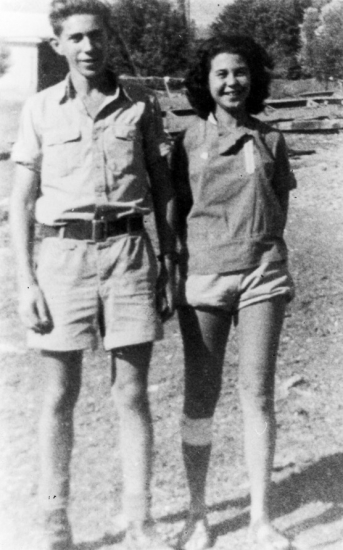
Translated by Barbara Abraham
The Tel Aviv where I was born and grew up is etched in my memory as a town of knowledge and challenge whose inhabitants were mostly young, determined and insistent on using only the Hebrew language. The town was still surrounded by sands across which camels and horses plodded with sacks of gravel on their backs. We lived on the periphery of the town in a small street shaded by orange groves. My school was next door to us – a small and intimate school called HaChashmonaim. Our home was next to the open countryside and my father used to take us for long walks every Shabbat or we would ride in a horse-drawn carriage to the still pristine Yarkon River where water lilies floated contentedly on the lucid surface. Those childhood years passed in a peaceful and protected ambiance. I had only overheard the echoes of the horrors occurring in Europe and was not yet aware of the enormity of the catastrophe. And so it was until I was fourteen – and then my world began to change.
First Father told us that he had joined a bird-watching group and he would no longer be taking us out on Shabbat. By then I was studying at Herzliya Gymnasium and belonged, as did the majority of young people, to a youth movement. At meetings we would hear lectures about the new State to be formed; about the horrors of the Holocaust; about what would happen when the British would leave and the State of Israel would be declared, and how the Arabs would react. One evening a surprising question was raised by one of our leaders: "Who amongst you wants – and is prepared – to join the Hagana?" Our hearts stopped beating for a moment – "The Hagana!" That word was only whispered in secret and now here we were being invited to be part of that special and secret organization. Of course all hands were raised and we were informed of the day and the place to meet and from which we would be taken to become acquainted with the Hagana leaders.
On the appointed day we met up at the corner of Achad HaAm and Hachashmonaim Streets. Each of us was given the password; we were guardedly informed of a building in a small side street which to my surprise was my old school. We made our way there separately and upon arrival whispered the password into an open crack in the front door: "Do not slumber, do not sleep, guard Israel!"
The door opened halfway but nobody was visible. However, a voice whispered: "Go up to the second floor and turn right." I did what I was told, I knew the way, up the stairs and into the very classroom where I had learnt in my childhood. It was dark and lit only by a candle flickering on a table which illuminated a bible and a pistol that had been placed there. I approached the table and a voice told me: "Put your right hand on the bible and your left hand on the pistol and say after me: "I swear to do my duty for my country and for my people and to carry out every order that I am given." I repeated the words, thinking inside – dear me, what will I tell mother and father? How can I do this in secret? How can I prevent them from finding out?
I retraced my steps and left the building, turning into my home where I was unable to find any peace of mind. I stalked up and down the house like a young tigress worrying until my father asked me, "What on earth has happened to you, Ruthie – you seem so excited and worried?" And then words tumbled out of my mouth, I couldn't stop them. "Papa today I swore I would do things that you cannot prevent me from doing – nothing bad, God forbid, but I cannot tell you." The more I tried to explain the more a smile lit my father's face. "Papa," I insisted, "this is not funny." He smiled even more and stretched out his hands towards me saying, "Mazal tov, Ruthie." Mother listened in silence.
"Mazal tov," I retorted, "what are you talking about?"
He exclaimed, "As of today Ruthie, both of us are now members of the Hagana!"
My mother added, "And as of today I will also make you sandwiches for your bird-watching group."
"So that is what your bird-watching is all about Papa!"
At the weekends we would both leave the house, each of us heading for our training sessions. Now I understood why on Sundays there were never any class exams in Herzliya Gymnasium.
We would also attend arms practice in one of the assigned meeting places which we were permitted to refer to only as – "Makel 1, Makel 2 or Makel 3" – and we had to remember which of the school buildings this was. Those were the days when Tel Aviv's schools had two faces – the clamor of day when children went to school to learn and to play, and the dark nights when in those classrooms floor tiles were secretly loosened and lifted to allow access to the well hidden arms caches. With these arms we were trained. One evening we were sent for the first time to "Makel 3" which was a school in Neve Tzedek on the border of Jaffa and Tel Aviv. We made our way there in twos, making sure we were not followed through the narrow, winding streets. The school was surrounded by a high wall with an iron gate guarded by a small hut. We stopped there, whispered the password and the gate swung open. We entered a large playground with the school building at the far end; as we approached the building our officer informed me: "Today it is your turn to be on guard."
"What must I do?"
He pointed over to some refuse bins standing beside the wall and gestured to me to follow him over to them: "Sit here," he said, "and don't take your eyes off the wall. If you see anybody coming over the wall push the button."
"What button?" I interrupted.
"Here, in the crack between the stones." He put my finger on the button. "Push as hard and as long as you can and we will get the signal and we will have time to hide the arms back in the cache."
"What if anyone asks me what am I doing here?"
"Tell them you are resting outside because you are not feeling well; your friends are in a class inside learning and you are waiting for them to escort you home."
I wasn't happy with that answer but in the Hagana one was not supposed to question the superior officer. He turned away and escorted my friend into the building. It was a beautiful moonlit night, I perched myself on the bins closest to the crack in the wall and hummed some of my favorite songs whilst I concentrated on the surrounding wall not letting my eyes rest. Time passed, all was quiet.
Suddenly I heard footsteps approaching, and I stopped humming. How could somebody have come in through the gate when the watchman was there? They hadn't come over the wall. The hurried footsteps were getting closer and my heart began to pound when I made out who it was – a British policeman. I slid off the bin and pressed my back to the wall, my hand extending into the crack and pushed the button hard as he came nearer. Before he reached me I extracted my hand and met his gaze but I couldn't stop my body from trembling as he spoke.
"What are you doing here?" he questioned me loudly with a strong British accent. "I am not well," I replied.
"So what are you doing sitting here?" he shouted.
"I am waiting for my friends to come and take me home." My knees trembled as did my voice.
"So where are your friends?" he questioned in a sarcastic tone.
"They are in class." I gestured to the building, answering as I had been told.
"Fine," he grunted, "So I am going to find them." He turned and began to walk away.
I slid my shaking hand into the crack and began to push the button with all my force until I saw him entering the building. Fear for the outcome filled me –if they hadn't heard and he found out what they were doing, he would arrest them. If he does that, I thought, I am going to give myself up with them. Before all my thoughts had formulated, the policeman reappeared in front of me accompanied by my officer.
"Ruthie?" he asked quietly, "You did ring the warning bell, didn't you?"
I exclaimed out loud, "What are you talking about?" while one terrible thought came to my mind – could my officer be a traitor?
"I asked if you rang the warning to the cache," he repeated, his voice cold.
I raised my voice letting my anger spill out, "I really don't know what you are talking about and in fact I don't even want to talk to you." I turned my back to him. Again he asked me, "Didn't you ring the bell?"
"Don't speak to me," I shouted, now bursting into tears as the British policeman came closer to me and put his hand on my shoulder, saying softly, "Don't cry maidele. I am a Jewish policeman now serving in the British police. I do what I can – these are difficult times and we have to give our secrets top priority – and you succeeded in doing just that."
He wrapped his arms around me and I dropped my head on his shoulder and let the tears fall freely.
Ruth Fine, a founder member of kibbutz Maayan Baruch, was born in Tel Aviv in 1928. The events described here are true. In 1947 she came north with the Hagana to Kfar Giladi and then, with members of Habonim, who included David Fine, her future husband from South Africa established Maayan Baruch.
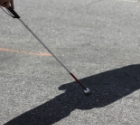 On Going Blind
On Going Blind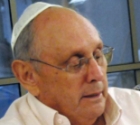 Leyland Goss 1936 – 2008
Leyland Goss 1936 – 2008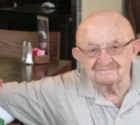 Max Geffen 1924 – 2008
Max Geffen 1924 – 2008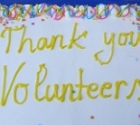 A new website in English - on Volunteering - Launched in Israel
A new website in English - on Volunteering - Launched in Israel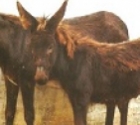 Help Needed for Abused Horses and Donkeys
Help Needed for Abused Horses and Donkeys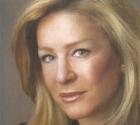 Heather's Heseg
Heather's Heseg